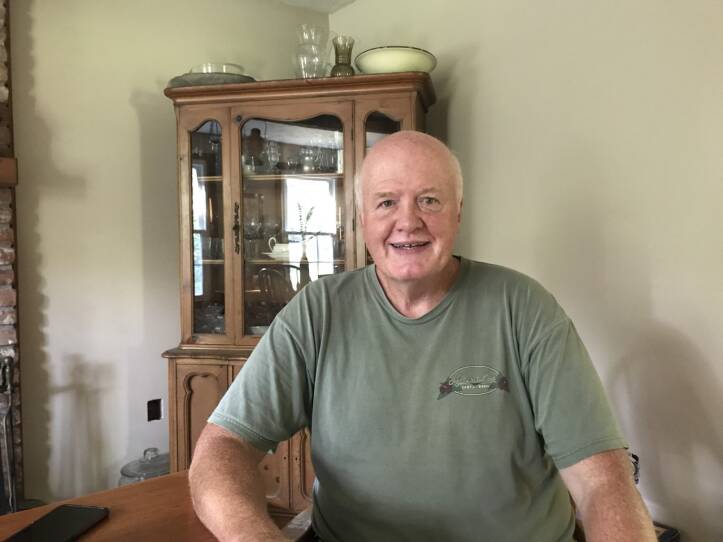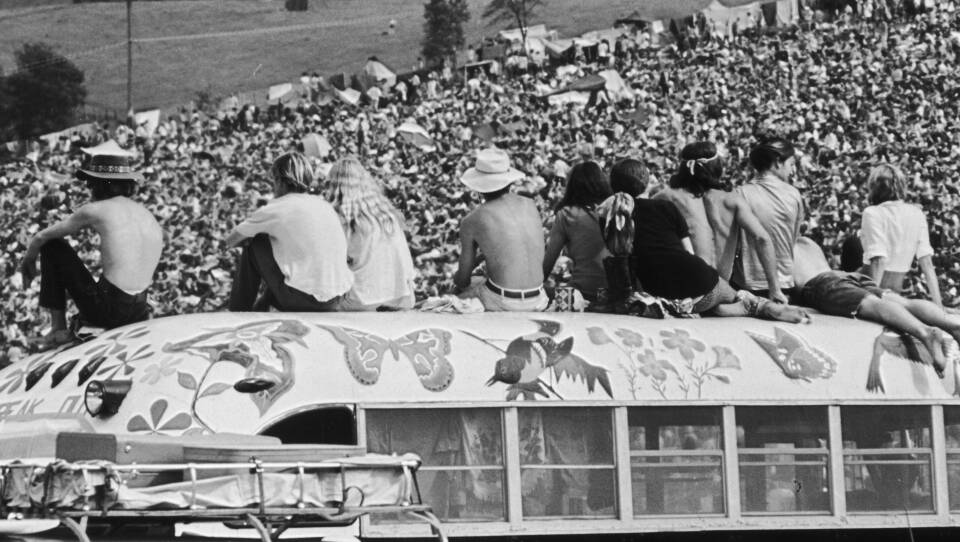In August 1969, Dennis McHale was a 17-year-old kid from New Jersey, and one of the more than 400,000 people who flooded Bethel, New York for a music festival that defined a generation.
Fifty years after Woodstock — which was held over three days on a 600-acre dairy farm owned by Max Yasgur — McHale sat in his Wrentham, Massachusetts home, reflecting on the concert and how it influenced his life.
McHale said he and his friend made the trip on a lark, after they saw photographs of the festival in the newspaper.
“[My friend] had bought a copy of the early edition of The Daily News, which had its panoramic pictures, and he held up the page, like the big picture centerfold, and said, 'We’ve got to go.'”
So they did. They drove north on Route 17, near Monticello Raceway, until they hit that infamous bottleneck of traffic that kept many young people away.
“And oh my God,” McHale said. “I mean, as far as the eye could see, there were cars parked diagonally, on the shoulders, and in the median of the island going north and south.”
Unable to drive further, they walked the final 15 miles to their destination.

McHale remembered hearing Country Joe McDonald’s iconic performance of the 1965 song," I-Feel-Like-I’m-Fixin’-to-Die Rag," which became an anthem for Vietnam War protesters. And like the rest of the crowd, who concert-goers remember as on their feet and singing along, the song struck a chord with McHale.
Read more: The Song At Woodstock That Spoke To A Generation
“Everybody was worried about Vietnam," he said. "You know, I was going to turn 18 in a few months.”
Turning 18 meant McHale was eligible for the draft, and he could be sent to Vietnam.
But for that weekend, McHale and his friend were on an adventure, and McHale said his anxiety and angst was swept away when bands such as Sly and the Family Stone played.
“I don't know what time of night it was,” McHale said. “it was late, and we were just having the time of our life.”
Food and showers were in short supply, but there was plenty of music to sustain the crowd. McHale said he particularly remembers the performance by Creedence Clearwater Revival.
“I said to my friend, 'I gotta go to sleep.' And just as I laid down,” McHale said, “I heard the opening line, the opening guitar riff to 'Born on the Bayou,' and that's it. ... We stayed up and watched the entire set.”
Like McHale, many who attended say Woodstock was a remarkable example of a peaceful gathering, despite conditions that could lead to violence, including overcrowding, bad weather and a lack of food. This is how Hugh Nanton Romney — better known as "Wavy Gravy" — remembers it. The leader of a California commune, Wavy Gravy became famous at Woodstock for announcing over the microphone, “Good morning, what we have in mind is breakfast in bed for 400,000.” But he also served as the festival's security chief.
“There wasn’t a single fistfight,” he said. “There was two cowboys that started to mix it up toward the front of the stage, and 400,000 people just said, 'Peace,' and they just ... shook hands and everybody cheered.”
Wavy Gravy's account echoes McHale's, who remembers the concert as a triumph of peace and unity in a time of war and division.
“That's the thing that really sticks in my mind tremendously,” McHale said. Despite the crowds, the mud, the drugs, and the lack of food and showers, “it was like we were all one.”




